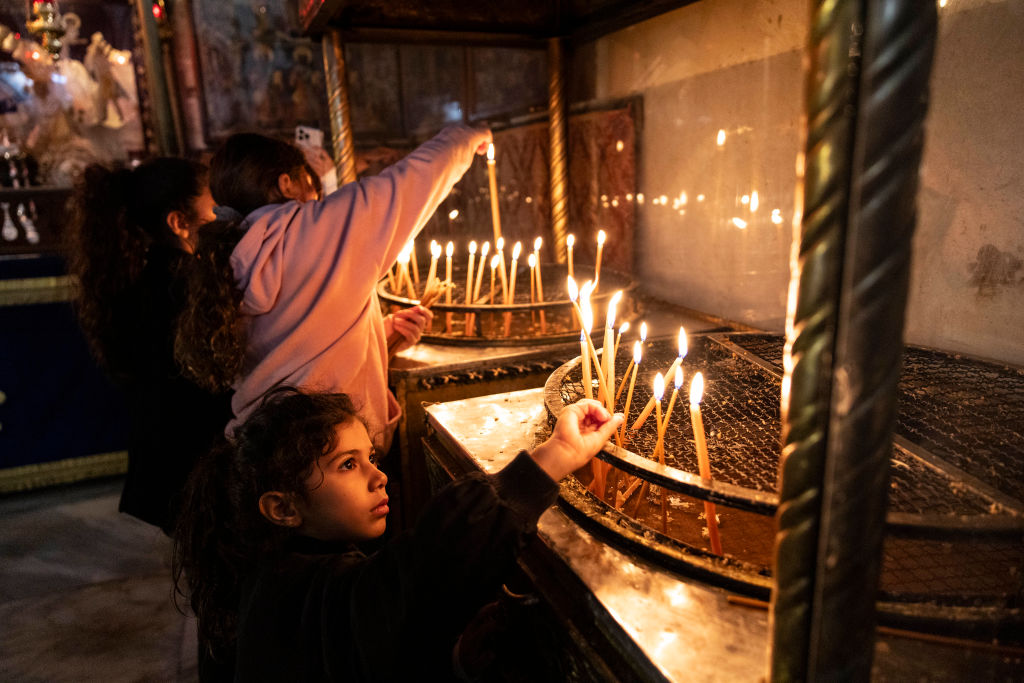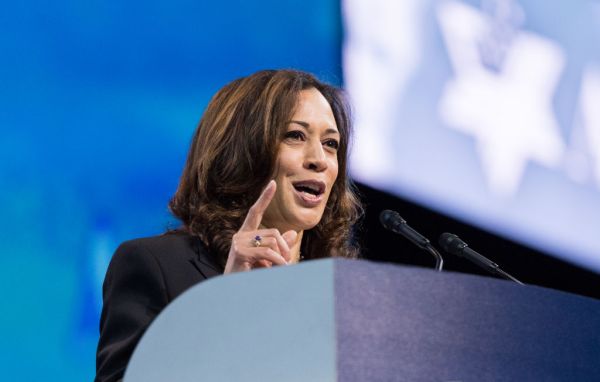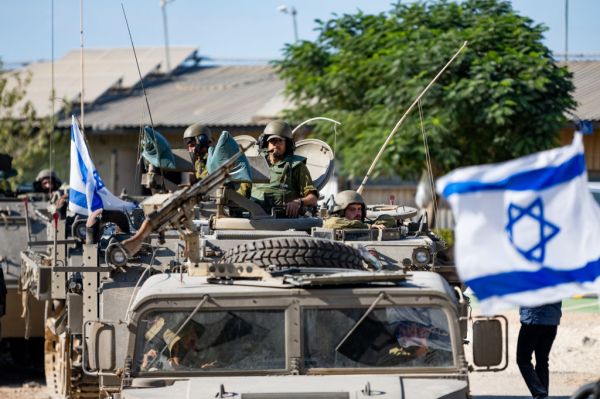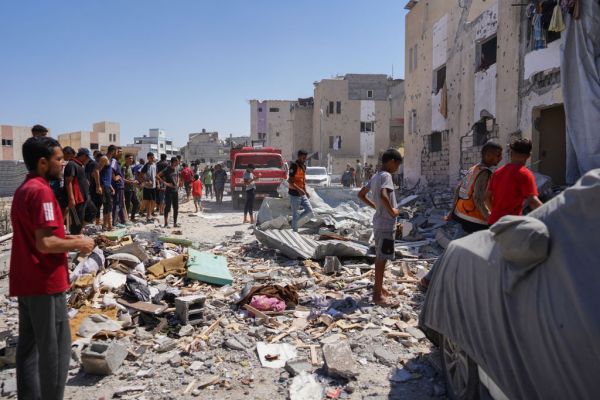Last year’s Christmas at Bethlehem Bible College (BBC) inside the West Bank was lively. Faculty, staff, students, families, and friends from the community arrived on campus to celebrate the end of the semester, then to attend the college’s annual Christmas party.
BBC was founded and is led by Palestinian Christians, evangelicals in particular. Picture a small cluster of white and pale pink stone buildings, some old, one new and gleaming, located on a campus that used to serve as the Helen Keller School for the Blind. These buildings are huddled on the main road through Bethlehem, mere blocks from a major Israeli checkpoint blocking the road north to Jerusalem.
“I remember last year we were jumping and dancing and singing and giving gifts. All sorts of things. And we were joyous,” said the Rev. Jack Sara, the college president. Even though BBC has evangelical leadership and a Christian mission—offering degrees in biblical studies, public theology, and tourism, and operating a center for peace and justice studies—some students come from Muslim families. Sara remembers giving gifts to his students for Secret Santa and welcoming the students’ families, Christians and Muslims alike.
The memory is a stark contrast to the modest affair the college hosted just a few days ago. “Now, we could barely feel … anything,” Sara said of this year’s gathering, which lasted about 20 minutes. He spoke briefly from Isaiah 9:6 about Jesus as the Prince of Peace. “The atmosphere certainly was not happy.”
It’s not just the college. Given Hamas’ October 7 attack into Israel, the ensuing assault on Gaza, and rising violence against Palestinians in the West Bank, Christmas is much different in Bethlehem this year. The reported death toll in Gaza has topped 20,000 (a number that the Israeli Defense Forces say includes thousands of Hamas fighters, but also countless family members and friends connected to the BBC community in Bethlehem).
Any other year, Christmas festivities would be in full swing in the town of Jesus’ birth. The center of that party is Manger Square, the plaza outside the Church of the Nativity. The site traditionally believed to be that of Jesus’ birth is in a small grotto below the altar inside the church.
Throughout the Christmas season, Manger Square is usually the site of a monumental tree, concerts, games, food, crowds, and public singing and dancing. Visitors catch the smells of falafel and arabic coffee infused with cardamom as they stroll beside the church. This year, Manger Square is silent and empty. The Christian community in Bethlehem is observing modest Christmas services at their churches and quiet gatherings in their homes. They are recalling the Christmas story as they pray for their families in Gaza.
Bethlehem is a center for Palestinian Christians, who number about 50,000 in the Palestinian territories–49,000 in the West Bank, fewer than 1,000 in Gaza. They are particularly proud of their role in keeping Christmas alive where Jesus was born. But this year, the season feels more like the Nativity scene on display at the Christmas Evangelical Lutheran Church, just down the hill from Manger Square. At the front of the sanctuary, the Christ child is lying on a giant mound of rubble, Mary, Joseph, and the shepherds straining to approach from the periphery of the devastation. The Rev. Munther Isaac, the church’s pastor and also the academic dean at BBC, preached a sermon in October in which he proclaimed that “Jesus is under the rubble”—in Gaza.
Given the tiny size of the Christian community in Gaza, and the close ties among Palestinian Christians across borders, each Christian lost in Gaza is a friend, a relative, or an acquaintance for the members of Bethlehem Bible College.
Last year, Shireen Awwad, the director of community and development outreach at BBC, hosted her family from Gaza for Christmas. They made meals and ate, went shopping, attended church services, and sang together. Awwad remembers one of her Aunt Elaine’s visits. A school principal from Gaza, Elaine was always careful to look presentable and once commented to Awwad: “When I die, I don’t want to trouble people around me. Every day, I shower and dress properly. That is how I want to be found.”
On October 19, Elaine was sheltering in St. Porphyrios Orthodox Church in Gaza when an airstrike sent chunks of the roof down on top of her. She later died of internal bleeding at the hospital. Awwad also lost an uncle when his appendix ruptured after he was unable to find medical help behind the Israeli blockade of medical supplies and electricity. This week, Awwad is worried about another relative in Gaza she hasn’t heard from in several days—a bomb fell next to the nursing home where she lives.
Awwad isn’t the only person in the BBC community mourning this Christmas. Sara described a friend from Gaza, a music teacher. “She loved the college and loved the choir,” he said. “Everytime we went to Gaza she would sing with us.” She died in Gaza too.
Sara described the moment he heard that Awwad’s aunt had been killed. He dropped everything and he and Isaac went to sit with Awwad at her home. These kinds of visits have become common this Christmas, not only with employees but students too.
In November, for example, Sara joined two other Christian leaders from Bethlehem to travel to the U.S. in order to deliver a letter to the White House calling on the United States to advocate for a ceasefire. “We want a constant and comprehensive ceasefire,” the letter said. “Enough death. Enough destruction. This is a moral obligation. There must be other ways. This is our call and prayer this Christmas.”
That same month, Awwad also joined a delegation of Palestinians to visit the Vatican and speak with Pope Francis. “I cried openly as I listened to one of the others describe the loss of his entire family, mom, dad, sister, brother, nieces, and nephews,” she said.
Awwad has spent this Christmas focused on caring for her students, praying for a quick end to the devastation in Gaza, where the school operates a satellite campus, and leading a humanitarian outreach program of the college, called the Shepherd Society. It’s a reference to the shepherds who have cared for their flocks on the hills around Bethlehem for millennia. Some were the first worshipers at the manger on that first Christmas.
The Shepherd Society has been responding to humanitarian needs since the first intifada in the 1980s, helping Muslim and Christian families alike, “without distinction.” Settler violence, home demolitions, economic blockades, unequal exploitation of water resources, and a litany of other issues have been ongoing realities for Palestinians since Israel took control of the West Bank and Gaza more than 55 years ago. These are aspects of what Palestinians mean when they use the term “occupation,” and they are realities that generate cascading humanitarian needs around BBC. Most recently, the society delivered food, milk, and diapers to the Christian hospital in Gaza until it became impossible. It “is a drop in the bucket” as Awwad put it, “but at least it shows our neighbors that someone cares. That makes a huge difference.”
Sara described how the community feels about the Shepherd Society. “Our community really loves the college,” he said. “When we help people with food packages, we distribute to our Christian and Muslim neighbors. So the community as a whole sees us as a light.” They resist anyone who tries to drive a wedge between them and their Muslim neighbors.
There have been outside proposals to treat the Palestinian Christian community with special protection, but Sara pushes back. “We refuse to be treated like VIPs or like someone who is not part of our people,” Sara said. “We have gone through everything Palestinian. We have lost our lives, land, and livelihoods along with our neighbors.”
The attitude parallels the Christian doctrine most closely associated with Christmas. The incarnation is the mysterious notion that God appeared in space and time, fully human, fully God, under the rubble of Roman occupation. Christmas is the story of God moving toward needy humanity. By moving toward the pain of others, even as they carry their own losses, the BBC community is embodying this aspect of the incarnation.
It is as if the Nativity scenes carved in the dozens of olive wood shops throughout the city serve as an object lesson. The original Christmas these scenes depict didn’t have festivals either. “This year in Bethlehem is like the first Christmas,” Awwad said. “Mary and Joseph were also under an occupation, and became refugees themselves.”








Please note that we at The Dispatch hold ourselves, our work, and our commenters to a higher standard than other places on the internet. We welcome comments that foster genuine debate or discussion—including comments critical of us or our work—but responses that include ad hominem attacks on fellow Dispatch members or are intended to stoke fear and anger may be moderated.